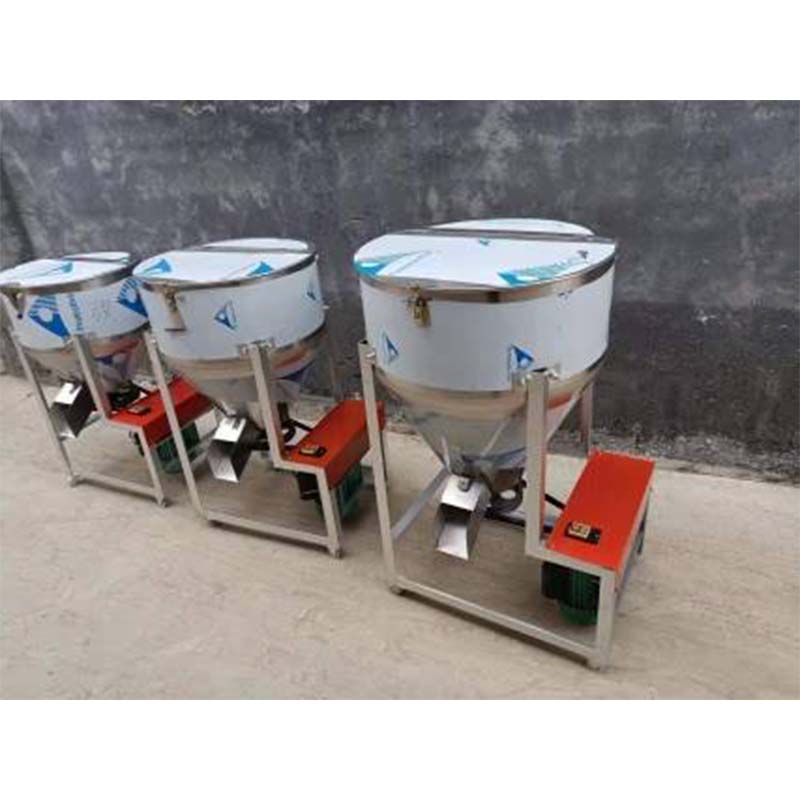Efficient and Compact Feed Mixer Solutions for Small Farm Livestock Operations and Nutrition Management
Aug . 06, 2024 15:17 Back to list
Efficient and Compact Feed Mixer Solutions for Small Farm Livestock Operations and Nutrition Management
The Importance of Small Farm Feed Mixers in Sustainable Agriculture
In the ever-evolving realm of agriculture, small farms play a crucial role in promoting sustainable practices, enhancing local economies, and providing fresh produce to communities. One oft-overlooked but vital piece of equipment that aids small farmers is the feed mixer. This machine is essential for ensuring that livestock receive balanced nutrition, which is critical for both animal health and farm productivity.
A small farm feed mixer allows farmers to blend different types of feed ingredients, such as grains, vitamins, and minerals, to create a custom feed that meets the unique dietary needs of their livestock. This flexibility is particularly important for small farms that may raise a variety of animals, including chickens, cows, sheep, and goats. Each species has specific nutritional requirements, and a feed mixer helps farmers optimize their feed rations accordingly.
One of the primary benefits of using a feed mixer is the potential for cost savings. By purchasing feed ingredients in bulk and mixing their own feed, farmers can significantly reduce feeding costs. Instead of relying on pre-mixed feeds from suppliers, which can be expensive and may not be tailored to the specific needs of their animals, small farmers can create a blend that maximizes both nutrition and value. This economic advantage is particularly crucial for small-scale producers who operate on tighter budgets.
Moreover, feed mixers contribute to waste reduction by enabling farmers to utilize leftover ingredients or byproducts from other operations. For instance, a dairy farmer might use leftover silage or fruit pulp from a neighboring fruit farm to enhance their feed. This not only minimizes waste but also promotes a circular economy within the local farming community, where resources are used efficiently, and waste is repurposed.
small farm feed mixer

In addition to their economic and environmental benefits, feed mixers also promote animal welfare. Proper nutrition is fundamental to the health and productivity of livestock. Well-nourished animals are less susceptible to diseases, produce more milk or meat, and exhibit better growth rates. By utilizing a feed mixer, farmers can ensure that their animals receive a balanced diet tailored to their growth stages, thereby fostering healthy and productive livestock.
Furthermore, advancements in technology have led to the development of more sophisticated feed mixer models that enhance mixing efficiency and accuracy. Many modern mixers come equipped with scales and monitoring systems that provide real-time data on nutrient composition, ensuring that farmers can fine-tune their feed formulations to achieve optimal results. This technological integration not only simplifies the feeding process but also empowers small farmers with knowledge about their livestock’s nutritional needs.
While investing in a feed mixer may seem daunting, the long-term benefits often outweigh the initial costs. Government grants and agricultural programs frequently offer financial assistance to small farmers looking to enhance their operations with such equipment. Additionally, the knowledge gained from using a feed mixer can lead to improved livestock production and increased profitability, further justifying the investment.
In conclusion, small farm feed mixers are invaluable tools that contribute to the sustainability, efficiency, and productivity of small-scale agricultural operations. By facilitating the creation of tailored feed blends, they help farmers save money, reduce waste, and promote animal health. As the agricultural sector continues to evolve, embracing such innovative solutions will be essential for ensuring the viability of small farms and the livelihoods they support. In a world increasingly focused on sustainability and local food systems, feed mixers hold the promise of a brighter, more nutritious future for both farmers and their livestock.
-
Automatic Feeding Line System-Pan Feeder Nipple Drinker|Anping County Yize Metal Products Co., Ltd.
NewsJul.29,2025
-
Hot Sale 24 & 18 Door Rabbit Cages - Premium Breeding Solutions
NewsJul.25,2025
-
Automatic Feeding Line System Pan Feeder Nipple Drinker - Anping County Yize Metal Products Co., Ltd.
NewsJul.21,2025
-
Automatic Feeding Line System Pan Feeder Nipple Drinker - Anping County Yize Metal Products Co., Ltd.
NewsJul.21,2025
-
Automatic Feeding Line System - Anping Yize | Precision & Nipple
NewsJul.21,2025
-
Automatic Feeding Line System - Anping Yize | Precision & Nipple
NewsJul.21,2025






